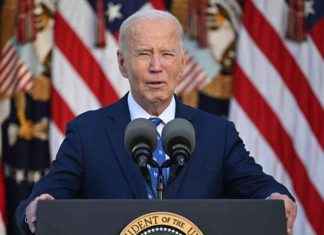BERKELEY, CALIF.—A speech by conservative firebrand Milo Yiannopoulos was canceled at the University of California, Berkeley on Wednesday amid violent protests on campus that sparked at least one fire.
Police clashed with protesters, and much of the university was placed on lockdown. Campus police were ordering protesters to leave the area, but many were refusing.
At 6:50 p.m., police used a loudspeaker to tell the crowd that Yiannopoulous had left the campus and that protesters would be arrested if they didn’t disperse.
Read more:
Breitbart editor Milo Yiannopoulos stirs free speech debate over Berkeley talk
Author Roxane Gay parts with Simon & Schuster over Milo Yiannopoulos dealAuthor Roxane Gay parts with Simon & Schuster over Milo Yiannopoulos deal
Twitter bans Breitbart editor over abuse of Ghostbusters star Leslie Jones
This marks the second time in two weeks that rowdy protests have forced the cancellation of a Yiannopoulos speech. The same thing happened last month at UC Davis, prompting a debate about free speech protections and how the university should response to so-called “hate speech.”
Yiannopoulos writes for Breitbart News and is an avowed supporter of U.S. President Donald Trump. On his Facebook page, Yiannopoulos said that “violent left-wing protesters” had broken into a building’s ground floor, ripped down barricades and threw rocks.
“My team and I are safe. But the event has been cancelled,” Yiannopoulous said.
In characteristic fashion, he pointed to the mayhem on campus to highlight his agenda: “One thing we do know for sure: the Left is absolutely terrified of free speech and will do literally anything to shut it down.”
The cancellation of his talk at UC Davis sparked debate about the limits of free speech and hate speech. Davis College Republicans decided it was unsafe to continue the event after a large number of protesters blocked access to the venue, according to a release from the school.
UC Davis interim Chancellor Ralph Hexter said he was “deeply disappointed” by the protests and the cancellation.
“Our community is founded on principles of respect for all views, even those that we personally find repellent,” Hexter said in a statement after the cancellation. “As I have stated repeatedly, a university is at its best when it listens to and critically engages opposing views, especially ones that many of us find upsetting or even offensive.”
Hexter said he worries that outside groups are using college campuses to trigger conflicts intended for the national stage. He acknowledged the difficulty of protecting open speech in a field rife with landmines.
“I get very, very alarmed with folks who don’t treat (freedom of speech) for the treasure that it is,” he said two weeks ago.
So far, the UC system has resisted calls to cancel the Yiannopoulos talks.
UC President Janet Napolitano and the Board of Regents’ advocacy of fighting offensive speech with “more speech” rather than censorship was included in “Principles Against Intolerance” approved by UC regents last year as guidelines for the 10-campus system. Campus administrators are counseling a similar approach to those urging a ban on Yiannopoulos.
In the weeks before Yiannopoulos’ planned Berkeley appearance, administrators received hundreds of letters from faculty, students and others demanding they bar him from speaking.
One letter from a dozen faculty members argued that his talk could be canceled on the grounds that his actions — which they called “harassment, slander, defamation and hate speech” — violated UC Berkeley’s code of conduct.
The Toronto Star and thestar.com, each property of Toronto Star Newspapers Limited, One Yonge Street, 4th Floor, Toronto, ON, M5E 1E6. You can unsubscribe at any time. Please contact us or see our privacy policy for more information.
Our editors found this article on this site using Google and regenerated it for our readers.





